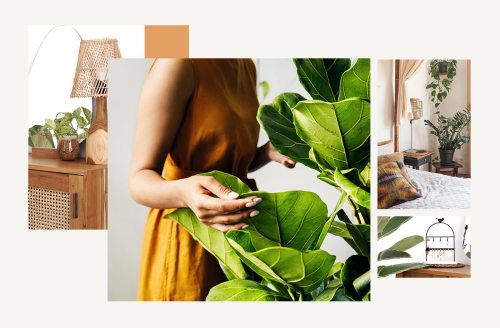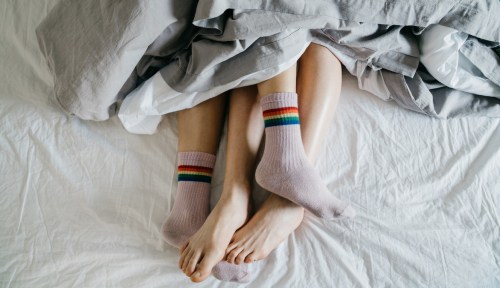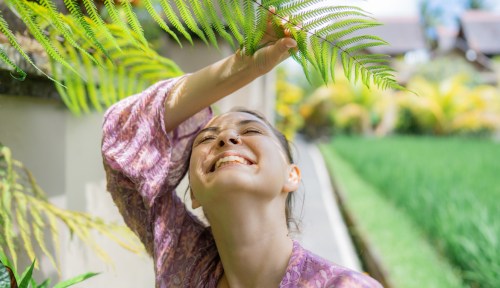Growing up, our tiny apartment was always filled with plants and flowers, courtesy of my mom, the first (and best) person with a green thumb I knew. She carefully and gently built an oasis in our home and let it teach her how to care for it. She seemed to intuitively know each and every plant’s needs; when it needed more or less water, when it needed to be repotted, or when it needed more sunlight. On Sundays, she would let me help her water all the plants. She’d show me how to check the soil, and tell me what brown spots on the leaves meant, or why a plant was suddenly leaning. She was a magician in my eyes. She’d bring home plants from work that I thought were dead or past any hope, and somehow, every time, she’d revive it. I saw how happy these rituals made her. I saw how calm she became. Peaceful. And every Sunday, as we watered the plants together, she’d always repeat the same mantra to me: “When you water your plants, they water you back.”
As a young, Black woman in her early 30s, taking care of my plants today, in my own indoor jungle, has been the grounding force of taking care of myself. Add in the backdrop of a global pandemic, and the Black Lives Matter movement that has gripped us all, and it’s clear that finding room for things that bring joy and nourishment is no longer a nice-to-do, it’s a must.
It’s no secret that millennials love plants. In the last three years, plant sales have skyrocketed over 50 percent to $1.7 billion in the States. More locally for me, in Canada, sales from 2013 to 2018 jumped eight percent to $1.5 billion. But it’s more than marketing; plants have become a unifying force in my generation’s ethos. In a world that seems to descend further into madness by the hour, plants offer a much needed respite to the chaos outside. A quick scroll through any plant-related hashtag on Instagram will show you that “plantfluencers” are a real thing. And as beautiful as those plant Instagram pages were, I just wasn’t seeing myself enough in that part of the online plant community. For me, plants were so much more than an aesthetic, they were a practice in reaffirming life. Amongst all the death that our communities have been bombarded with over these months, from COVID disproportionately affecting Black and brown people, to seemingly endless police killings, we need reminders that we are life-bound, too. This was the major catalyst for starting my own Instagram page, called Black Girl Rooted. I wanted to create a safe space for other Black women, like myself, whose love for self was channeled and amplified through their love for plants.
Plant care is troubleshooting. It’s pruning and weeding out the dead leaves. It’s repotting after substantial growth. It’s taking root.
The parallels that plants evoke in our own personal lives almost become overwhelming when you start to notice them. There is an intuitiveness to plants that demands intimacy—the same intimacy that I saw in how my mom took care of her plants. There is a secret language between us and our plants, just as there’s a secret language between us and our own bodies, minds, and spirits. Plant care is troubleshooting. It’s pruning and weeding out the dead leaves. It’s repotting after substantial growth. It’s taking root. Plants show us how to ask for what we need every time they lean towards the sun. Plants show us that by clipping away dead leaves, we preserve our energy for where it’s needed. Plants teach us how to move on from homes, friendships, jobs, relationships when they become too small and uncomfortable for us. It’s when we stop listening, that our plants, and ourselves, fall apart. It’s no wonder, then, that when my own personal life took a turn for the worse back in November, several of my plants died. I forgot how to listen to that secret language, and I—along with my plants—suffered for it. So, just like self care, taking care of our plants, is a practice. We have to consistently work at it. And when we do, just like my mama always says (and still does, to this day), they water us back.
I’ve learned that the nurture and care that my plants require is the same that I require. The care and gentleness they require of us is a reflection of what we as Black women want for ourselves. With anxiety and depression on the rise in young adults, plants can provide true calming. They are our friends that welcome us home each day. They are a routine that keeps us going through the days. They are our reminders that even on the hardest days, we still grow. It may feel minute and slow, but it is nevertheless real. They are a barometer for how we are doing. Plants aren’t only part of beautiful aesthetics or carefully curated Instagram accounts. It is so much more than that for us. This is about the preservation of life. Our plants become our living, breathing totems that tell the world “we’re still here.”
Sign Up for Our Daily Newsletter
Get all the latest in wellness, trends, food, fitness, beauty, and more delivered right to your inbox.
Got it, you've been added to our email list.











